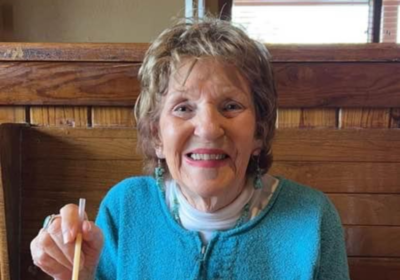America’s community banks hope for lighter regulation
A FEW weeks ago Standard Financial, a bank with assets of just $488m and a mere nine branches, merged with Allegheny Valley Bancorp, a slightly smaller neighbour in the suburbs of Pittsburgh. The main reason for the deal, says Tim Zimmerman, Standard’s chief executive, was the rising cost of regulation—though competition from PNC, a $371bn colossus based in the city, also played a part. “Without the regulatory overreach…since the crisis,” Mr Zimmerman says, “we’d probably both have gone along on our own, I think.”
Standard is one of America’s 5,400 community banks: local lenders, funded chiefly by deposits, who pride themselves on knowing their turf by the inch and their customers by name. Their size can range up to $10bn in assets, but most are much smaller: over 5,000 banks and savings institutions have less than $1bn and more than 1,500 under $100m. They account for 92% of federally insured banks. Though they make only 16% of all loans, they provide 43% of small-business loans.
But their numbers are in long-term decline, falling by one-third in the past ten years. More than 400 failed between 2008 and 2012. Only four have opened since. Yet four disappear every week—most, like Allegheny Valley, by merging with another community bank.
Despite their thinning ranks, community banks are practised lobbyists: almost every congressional district has at least one. In late April and early May the Lilliputians—in the guise of the Independent Community Bankers of America (ICBA)—were warmly welcomed to Brobdingnag. Greeting more than 100 of them at the White House, Donald Trump called them “the backbone of small business in America” and promised to roll back regulation, notably the Dodd-Frank act of 2010. Both Jeb Hensarling, chairman of the House of Representatives Financial Services Committee, and Steven Mnuchin, the treasury secretary, addressed the ICBA at breakfast, before the bankers headed for Capitol Hill.
Regulation, especially of mortgages, is community bankers’ number-one complaint. Preston Kennedy, who runs Bank of Zachary, in Louisiana, which has assets of $250m, says he has had to expand his mortgage department from three people to six, and add a senior officer to oversee it, in the past five years. Mr Zimmerman says borrowers must sign or initial a typical mortgage agreement in well over 30 places. Reading the papers in full would take hours, but after just one “their mind would be fried anyway”. The idea is to help customers make better decisions (after the disastrous pre-crisis subprime boom), but he doubts that it does.
Camden Fine, head of the ICBA, likens the rules to a “cookie-cutter”. In essence, only “qualified” mortgages meeting certain criteria (eg, on the ratio of debt to income) may be sold to Fannie Mae and Freddie Mac, the government-owned giants that dominate the secondary market. Banks fear that if they make loans that do not fit the template, borrowers who are unable to repay may sue, claiming that lenders were careless. The ICBA knows of no suits yet, but bankers are nervous. Scott Heitkamp, chief executive of ValueBank Texas, in Corpus Christi, says he no longer makes such loans, although “they were our bread and butter for years”. Mr Zimmerman does, “with trepidation”.
Despite all this, community banks’ business model has held up pretty well. In the 12 months to March, according to the Federal Deposit Insurance Corporation (FDIC), the main supervisor of most of them, community banks’ loan books grew by 7.7%, more than twice the rate at other, mainly much bigger, lenders. Net income rose by 10.4%, against 12.7% for the whole industry. Returns on equity, at 9.2%, were a little below the average.
Nevertheless, the fixed costs of regulation weigh more on them than on bigger lenders. And they have other troubles to contend with. Perhaps most important is the cost of keeping up with information technology—both to provide customers with the online services they have come to expect (see article) and to guard against cyber-attacks—which, like regulation, is a heavier burden the smaller you are. The expense of “two delivery channels” creates “another pressure point”, says Standard’s Mr Zimmerman.
Another concern is succession planning, which at a bank requires finding someone with specialised expertise. Many community banks are family-run, and children may not always follow in their parents’ footsteps (though plenty do: Rebeca Romero Rainey, who succeeds Mr Fine at the ICBA next year, runs Centinel Bank in Taos, New Mexico, founded by her grandfather in 1969). Mr Zimmerman says this may cause more trouble at banks like his, which are not family firms and have to look outside. A happy by-product of the merger is that it equips Standard with his successor, Allegheny’s boss, Andy Hasley.
A third preoccupation is finding and keeping capable staff. Not everyone wants to work in out-of-the-way places—and holding on to people in cities, where big banks prowl, can be hard too. And fourth, margins between lending and borrowing rates, from which community banks make most of their money, have been thin, and have lately declined slightly.
Community bankers blame the paucity of new banks, too, on heavy-handed regulation. The FDIC, arguably too slow to act before the crisis, became more cautious after it. Among other things, it extended the period of closer scrutiny of new banks from three years to seven (it has since been cut back to three). But the decline in banks’ price-to-book ratios after the crisis was probably also important, encouraging mergers and purchases of existing banks rather than the opening of new ones. This arithmetic may be going into reverse: five applications for charters are pending. But that is still just a trickle.
The bankers hope lighter regulation is on the way. Mr Mnuchin is due to send Mr Trump a report soon on which rules are ripe for overhaul. Cheered by the ICBA, last month Mr Hensarling’s committee passed a bill easing the conditions for conforming mortgages, cutting paperwork and relaxing other rules. After the whole House votes, the bill may struggle in the Senate, yet ValueBank’s Mr Heitkamp believes “the wind has shifted” in Washington. Wall Street has friends in high places. But so do American banking’s little guys.





